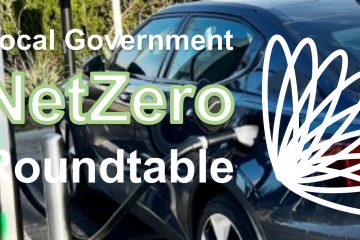Introduction
As we meet with various councils around the country, we find many with strategic commitments towards low carbon futures and net zero emissions. The following is a snapshot of our discussions with councils regarding their emission reduction commitments and Renewable PPAs.
Strategic Commitments
Councils are moving towards carbon neutrality for corporate/operational emissions with a mix of:
- energy efficiency measures;
- renewable energy generation;
- renewable PPAs; and
- carbon offset options.
Some councils have declared a state of climate emergency and are developing action plans accordingly. While some councils do not have formal emission reduction targets, many have commitments to reduce energy usage.
Some 140 councils have joined the Climate Council’s Cities Power Partnership, which will see them accelerate their emission reduction and adoption of clean energy. Many of these councils have a plan in place for their buildings/facilities to be powered by 100% renewable energy over the next decade.
While some councils are adventurous with their target timeframes, others have realised that, in the absence of suitably priced renewable energy, their targets are overly ambitious and are reviewing them.
Purchasing Renewable Power
Most councils have considered purchasing GreenPower. Some have purchased GreenPower at a premium for several years. Many have subsequently stopped purchasing GreenPower and diverted that premium spend to renewable energy generation projects and energy efficiency initiatives including lighting upgrades to LED.
Few councils are exploring what they can do with their communities around generating/sharing renewable energy. Councils are also involved in various pilot projects exploring community energy generation, battery storage and peer-to-peer trading.
Barriers
Most councils confirmed the cost/premium is the biggest barrier to considering the purchase of renewable energy. Some indicated that lack of competition and suitable PPA products in the market are barriers. A few councils felt the complexity of the energy market and availability of expert advice was a significant barrier.
Many councils have been tempted by the promise of significant savings flowing from PPAs with generation assets without fully understanding the risk or resource/expertise requirements to implement and monitor a long term agreement with an energy generator.
Renewable PPAs
Councils have not been able to source PPAs that meet their needs, with many outside their risk profile. Councils have been used to fixed price three-year agreements. Discussions around PPAs do not progress because there is a lack of preparedness to commit to unknown price movements and length of term. It has been suggested to some councils that PPAs would be significantly more expensive than their current power pricing structure to keep them tied to existing black power arrangements.
Contestable Components
Most councils are confused about what is and what is not contestable and what that means in the short and long term. For most councils at least 40% of their energy bill is contestable. While large market sites are contestable, small market sites are generally not contestable. There are rules in some states that make small sites contestable under certain conditions such as annual volume and access to smart meters. Similarly, unmetered streetlights are generally not contestable. However, there are rules in some states that make them contestable.
Renewable Generation
Most councils have taken steps to install solar panels on their civic and community buildings such as libraries, childcare centres and sporting facilities. Some councils are exploring investment/development options for solar farms on their disused landfill sites. Councils are also working on Waste-to-Energy (WtE) plants in a regional context.
The mix of ambitious emission reduction targets and early Renewable PPAs promising significant savings has influenced many councils to consider participation in PPAs.
Conclusion
The economic fundamentals around renewable energy are all positive:
- renewable energy projects continue to increase the volume of clean energy in the grid;
- cost of renewable energy production continues to fall; and
- demand for renewable energy continues to grow.
Now is the time for councils to consider taking up renewable energy without the added risk or the need for additional resources and expertise. If you are interested in discussing your options, call us now.
About Us
Ravim RBC is a strategic consultancy working extensively with:
- Councils adopting strategies to align their services against community needs, expectations and ability to pay; and
- commercial clients adopting thought leadership/innovation strategies to position products and services that capture local government markets.
John Ravlic
7th December 2020



0 Comments